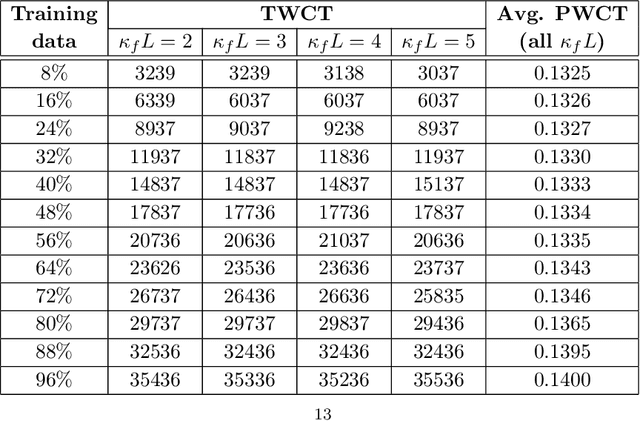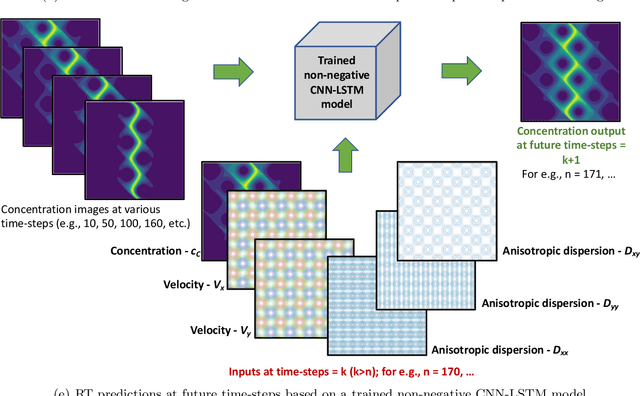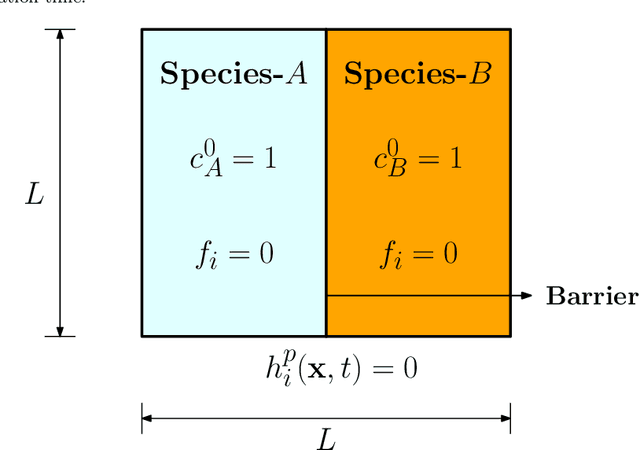K. B. Nakshatrala
CoolPINNs: A Physics-informed Neural Network Modeling of Active Cooling in Vascular Systems
Mar 09, 2023Abstract:Emerging technologies like hypersonic aircraft, space exploration vehicles, and batteries avail fluid circulation in embedded microvasculatures for efficient thermal regulation. Modeling is vital during these engineered systems' design and operational phases. However, many challenges exist in developing a modeling framework. What is lacking is an accurate framework that (i) captures sharp jumps in the thermal flux across complex vasculature layouts, (ii) deals with oblique derivatives (involving tangential and normal components), (iii) handles nonlinearity because of radiative heat transfer, (iv) provides a high-speed forecast for real-time monitoring, and (v) facilitates robust inverse modeling. This paper addresses these challenges by availing the power of physics-informed neural networks (PINNs). We develop a fast, reliable, and accurate Scientific Machine Learning (SciML) framework for vascular-based thermal regulation -- called CoolPINNs: a PINNs-based modeling framework for active cooling. The proposed mesh-less framework elegantly overcomes all the mentioned challenges. The significance of the reported research is multi-fold. First, the framework is valuable for real-time monitoring of thermal regulatory systems because of rapid forecasting. Second, researchers can address complex thermoregulation designs inasmuch as the approach is mesh-less. Finally, the framework facilitates systematic parameter identification and inverse modeling studies, perhaps the current framework's most significant utility.
A deep learning modeling framework to capture mixing patterns in reactive-transport systems
Jan 11, 2021



Abstract:Prediction and control of chemical mixing are vital for many scientific areas such as subsurface reactive transport, climate modeling, combustion, epidemiology, and pharmacology. Due to the complex nature of mixing in heterogeneous and anisotropic media, the mathematical models related to this phenomenon are not analytically tractable. Numerical simulations often provide a viable route to predict chemical mixing accurately. However, contemporary modeling approaches for mixing cannot utilize available spatial-temporal data to improve the accuracy of the future prediction and can be compute-intensive, especially when the spatial domain is large and for long-term temporal predictions. To address this knowledge gap, we will present in this paper a deep-learning (DL) modeling framework applied to predict the progress of chemical mixing under fast bimolecular reactions. This framework uses convolutional neural networks (CNN) for capturing spatial patterns and long short-term memory (LSTM) networks for forecasting temporal variations in mixing. By careful design of the framework -- placement of non-negative constraint on the weights of the CNN and the selection of activation function, the framework ensures non-negativity of the chemical species at all spatial points and for all times. Our DL-based framework is fast, accurate, and requires minimal data for training.
 Add to Chrome
Add to Chrome Add to Firefox
Add to Firefox Add to Edge
Add to Edge